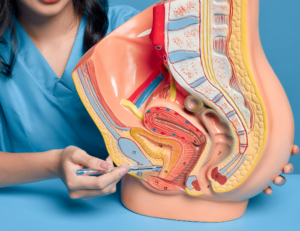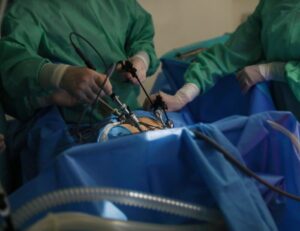As Breast Cancer Awareness Month comes to a close, be sure to know the symptoms of breast cancer and what you can do to detect the disease early.
Each October, the world comes together for Breast Cancer Awareness Month, an effort to increase awareness of the disease and its symptoms. Breast cancer is the second most common cancer in U.S. women[1] and nearly 12 percent of females develop the disease over the course of their lifetime[2]. Therefore, it is incredibly important to know the symptoms, what you can do to manage your breast health and how to diagnose the disease early.
While you should always have a yearly breast exam with your doctor, we recommend you also perform a monthly self-exam and contact your doctor should you notice any abnormalities or breast cancer symptoms.
Know the symptoms
Before you begin examining yourself, take a step back and learn the symptoms of breast cancer. While the following signs[3] may indicate you have breast cancer, it is important to note that there may be other causes for these symptoms. Be sure to speak with your doctor should you notice any of the below signs during your self-exam.
1. New lump in the breast or armpit area
2. Part of the breast thickens or swells
3. Irritation or dimpling of breast skin
Redness or flaky skin in the nipple area or breast
Pulling in of the nipple or pain in the nipple area
Nipple discharge other than breast milk, including blood
Change in the size or the shape of the breast
Pain in any area of the breast
Perform a self-exam
Now that you know the symptoms of breast cancer, let’s walkthrough your self-exam. This should be done monthly and through two ways – looking and feeling.
First, look for any of the symptoms mentioned above. Can you see a new lump anywhere or is there some discharge? After taking a careful look, feel for symptoms by pressing two flat fingers against your breast and moving them in either a circle, line or wedge pattern until you have examined the entire chest and armpit area.
Through self-exams, you will be the first to notice anything different with your chest area and can likely detect a disease early
How WomanCare can help
Although most people visit an OBGYN to discuss treatment options, we offer many other services to help you stay on top of your health, including mammography exams and breast tomosynthesis[4], which aid in the early detection and diagnoses of breast cancer and other diseases. Our team is here to help you through screening and can provide recommendations on next steps for any diagnosis. As October comes to an end, remember to conduct your monthly self-exam, look and feel for any signs of breast cancer, and schedule your annual screening with our friends at NCH Breast Imaging Center at (847) 618-2740.
[1] Breast cancer. Mayo Clinic. https://www.mayoclinic.org/diseases-conditions/breast-cancer/symptoms-causes/syc-20352470. Published November 22, 2019.
[2] U.S. Breast Cancer Statistics. Breastcancer.org. https://www.breastcancer.org/symptoms/understand_bc/statistics. Published June 25, 2020.
[3] What Are the Symptoms of Breast Cancer? Centers for Disease Control and Prevention. https://www.cdc.gov/cancer/breast/basic_info/symptoms.htm. Published September 14, 2020.
[4] Radiological Society of North America (RSNA) and American College of Radiology (ACR). Breast Tomosynthesis. RadiologyInfo.org. https://www.radiologyinfo.org/en/info.cfm?pg=tomosynthesis.








